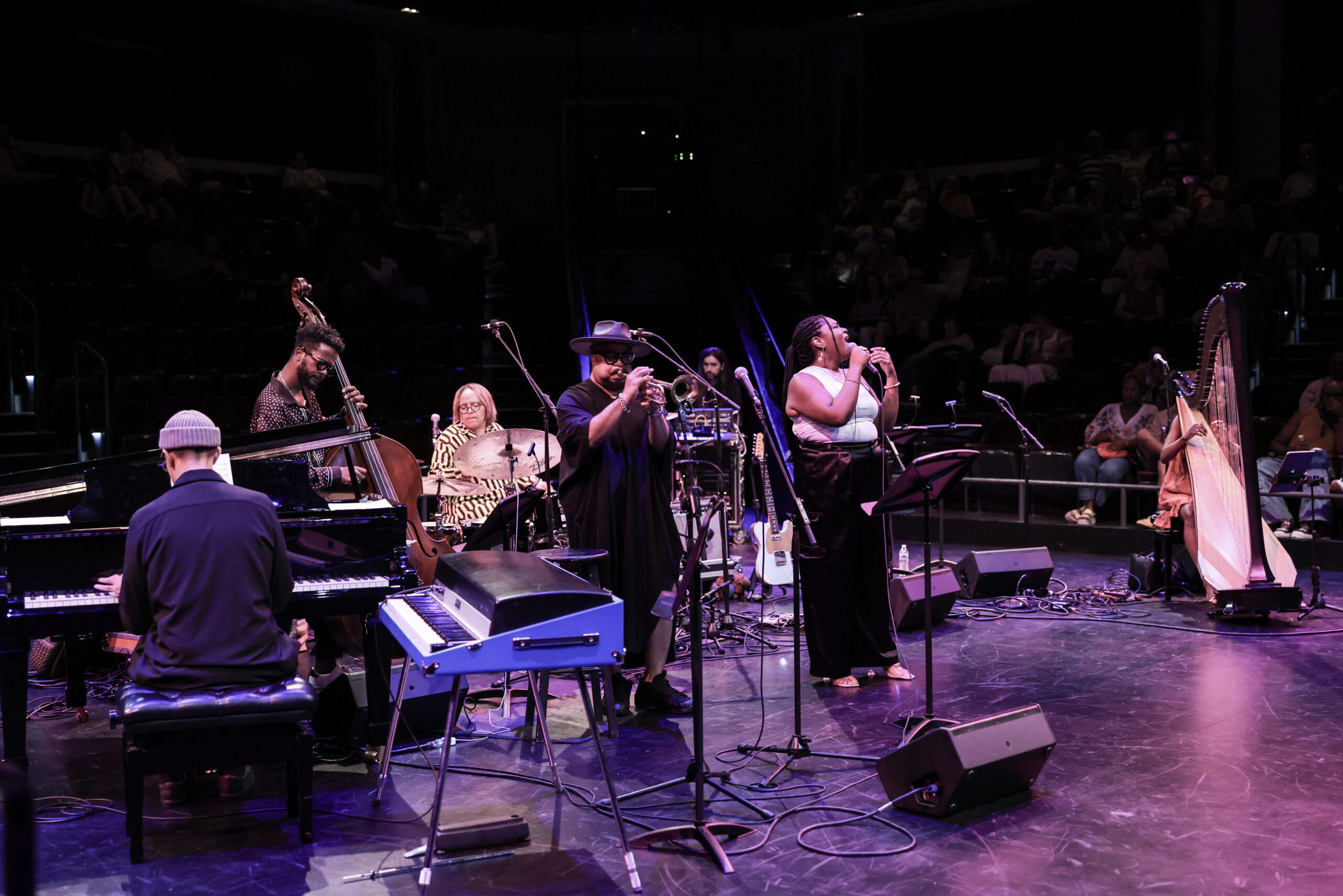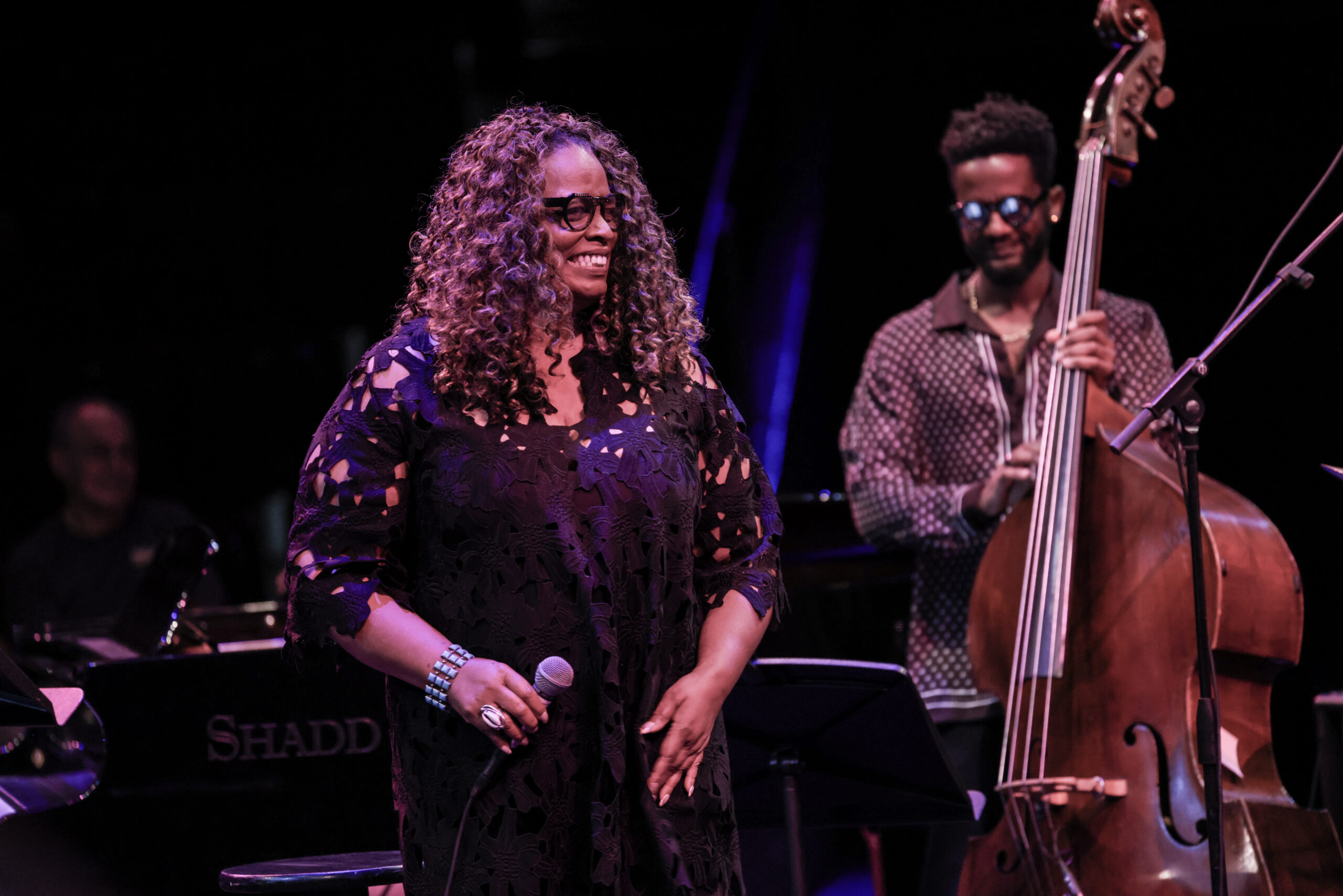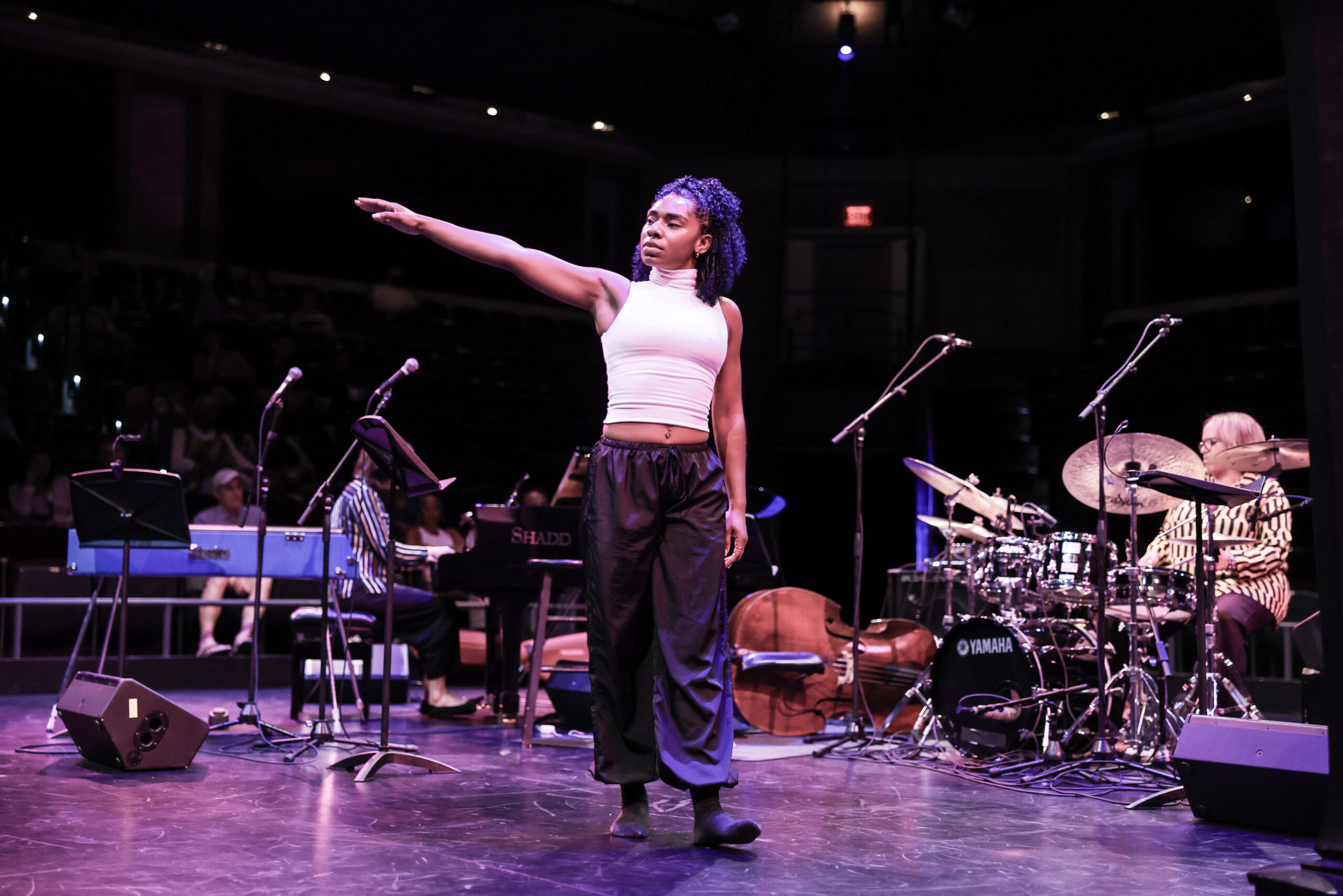Terri Lyne Carrington and Friends
DC Jazz Festival at Arena Stage
Saturday, Aug. 31, 2024
Miles Davis once famously insisted that the music known as “jazz” really should be called “social music.” It is the sound of people getting together, interacting and taking chances. But in the grand celebrations that we call “jazz festivals,” that social aspect can get lost. At big festivals, many people gather – some traveling from across the country or even the globe – to listen and engage with the music, yet there isn’t always a lot of interplay between the various groups, musicians, icons and legends on the bill.
On the Saturday evening of the DC Jazz Festival’s recent 20th-anniversary edition, Terri Lyne Carrington turned her headlining set – under her “New Standards” moniker – into a social-music affair.
She has presented this project at the DCJF before; last year Carrington brougt a version of the all-star band from her New Standards, Vol. 1 album, including pianist Kris Davis and bassist Linda May Han Oh. But Carrington’s performance at Arena Stage’s Fichlander Stage was something new, and it set an example – a new standard, if you will – of something that ought to happen much more often at jazz festivals.

The excitement began almost immediately. I was enticed when it was not Oh who picked up the upright bass at the start of the night but D.C. native Ben Williams. Sitting at the ivories was not Davis, but pianist Marta Sánchez (who had also played just a couple hours before on the Wharf, with saxophonist David Murray’s quartet). They were joined by trumpeter and DMV native Brandon Woody and trumpeter Josh Evans; this made up the house band for the night.
From there, lineup shakeups followed, one after the other, over the nearly-two-hour performance, as fellow festival headliners like guitarist Bill Frisell, vocalist Dianne Reeves, vocalist Christie Dashiell, pianists Kris Davis and Gerald Clayton took turns gracing the stage. So did dancer and intermedia artist Christiana Hunte, trumpeter Nicholas Payton, saxophonist Greg Osby and harpist Brandee Younger. The constant throughout the evening was the repertoire, which came from Carrington’s ongoing “New Standards” project, a showcase of tunes by women composers, and one part of Carrington’s multifaceted work to disrupt masculinist hierarchies in the music.
Sometimes Carrington would call her special guests to the stage, while at other times, core band members like Evans and Woody would flit on and off as they were needed. At one point Payton seemed to just appear out of the wings, like a seraphim called spontaneously by the divine aural forces on stage.

All of the musicians clearly showed up in service to the songs they were called to perform, bringing their musical identities with them and letting them intermingle. When Frisell emerged, during the first third of the concert, his sweeping tone and reverb-soaked mountain twang crashed against Carrington’s blues-inflected drum improvisations on Marilyn Crispell’s “Rounds” before blending with Reeves’s sighing delivery of Eliane Elias’ “Moments.” Just moments later, Christie Dashiell playfully called on the band to pick up the groove of Reeves’s composition “Tango,” and the radiant joy of Dashiell’s delivery summoned Reeves back for what felt like a mid-set encore. Dashiell’s voice then paired with Davis’s piano, and they melted together for a breathtaking rendition of Abbey Lincoln’s “Throw It Away.”
A couple of numbers later, Woody blew in with his signature brash tone, and as Brandee Younger led the way into her compositoin “Respected Destroyer,” his overtones of electric Miles mixed with the spirit of Alice Coltrane that Younger was carrying. All the while, the band was supported by Gerald Clayton’s bluesy touches of modern bop-isms on piano. Everyone’s musical identities were showcased but didn’t dominate, blending as if an expert audio engineer was at the controls, balancing the levels of a non-hierarchical collective.

That all came to a head with the grand finale, a victorious and roaring version of Alice Coltrane’s “Blue Nile,” which featured Payton and Osby on horns, Younger on harp, Clayton on piano, Dashiell on vocalizations and Hunte reciting Carrington’s original poem “seen/unseen.” The piece was unmistakably Coltrane’s, without any subversion or original spin on melody and tone, but once again drew out the strongest parts of each performer’s sound – Dashiell’s radiant tone, Payton’s forceful buoyancy, Osby’s sharp phrasing – and allowed for something greater than the whole.
As the audience trickled out of the theater, catching our breath and emotionally processing and reconstituting from the majesty of the performance we witnessed, this writer caught up with several fellow jazz critics and music professionals. There was an agreement between us that the night was something we all rarely experience, something like the days of the two great Miles Davis Quintets, when every performer on stage was virtually as prominent and proficient as the others. It was a true celebration of the best of the music and a embodiment of that idea of “social music.” Moments like this should be more common at festivals, bringing big names together in service to nothing but the music and the potential it can conjure.








Join the Conversation →